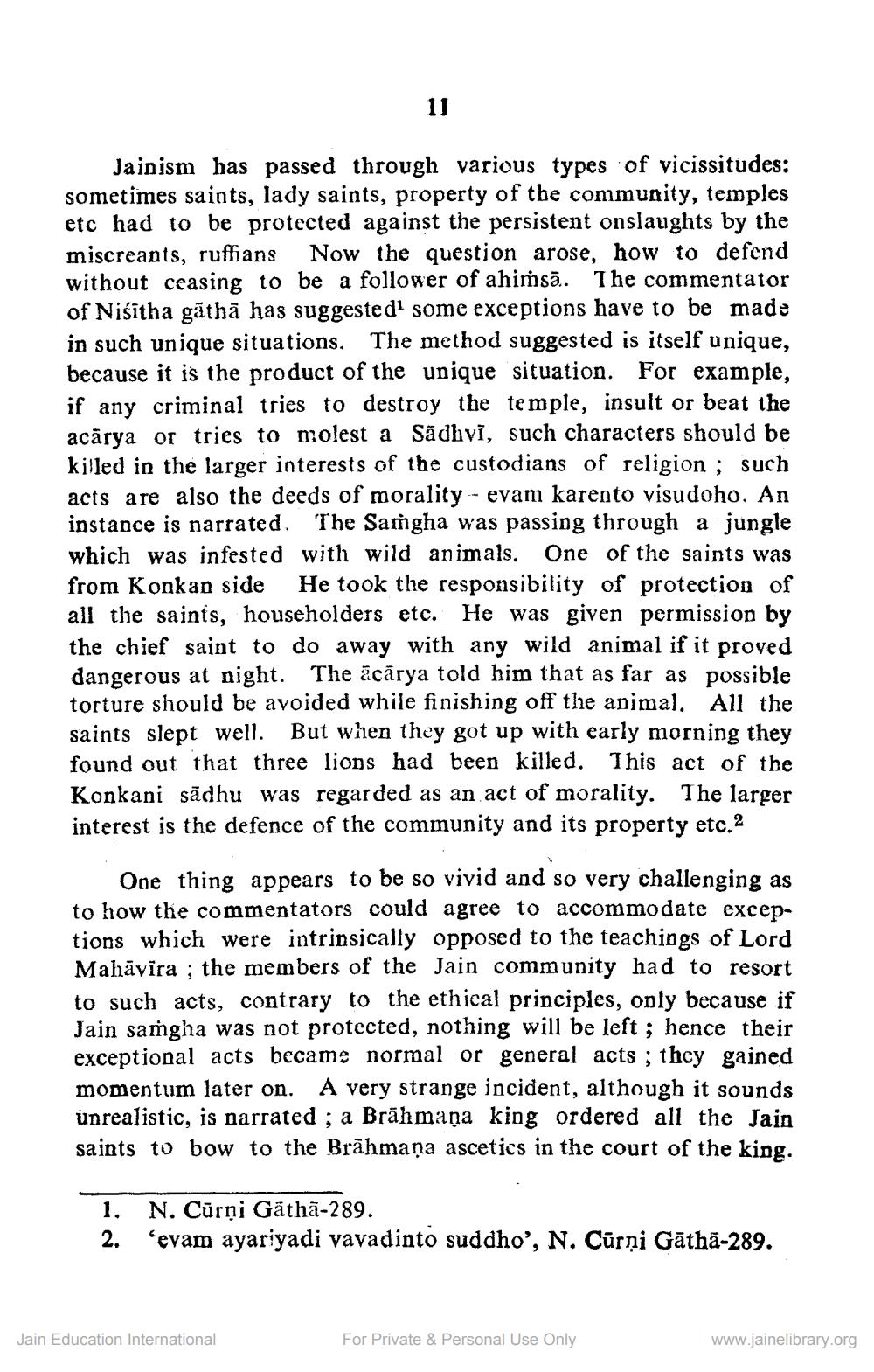________________
Jainism has passed through various types of vicissitudes: sometimes saints, lady saints, property of the community, temples etc had to be protected against the persistent onslaughts by the miscreants, ruffians Now the question arose, how to defend without ceasing to be a follower of ahimsā.. The commentator of Niśitha gāthā has suggested some exceptions have to be made in such unique situations. The method suggested is itself unique, because it is the product of the unique situation. For example, if any criminal tries to destroy the temple, insult or beat the acārya or tries to miolest a Sādhvi, such characters should be killed in the larger interests of the custodians of religion ; such acts are also the deeds of morality-evam karento visudoho. An instance is narrated. The Samgha was passing through a jungle which was infested with wild animals. One of the saints was from Konkan side He took the responsibility of protection of all the saints, householders etc. He was given permission by the chief saint to do away with any wild animal if it proved dangerous at night. The acārya told him that as far as possible torture should be avoided while finishing off the animal. All the saints slept well. But when they got up with early morning they found out that three lions had been killed. This act of the Konkani sādhu was regarded as an act of morality. The larger interest is the defence of the community and its property etc.2
One thing appears to be so vivid and so very challenging as to how the commentators could agree to accommodate exceptions which were intrinsically opposed to the teachings of Lord Mahāvīra ; the members of the Jain community had to resort to such acts, contrary to the ethical principles, only because if Jain samgha was not protected, nothing will be left; hence their exceptional acts became normal or general acts; they gained momentum later on. A very strange incident, although it sounds unrealistic, is narrated ; a Brāhmaṇa king ordered all the Jain saints to bow to the Brāhmaṇa ascetics in the court of the king.
1. N. Cūrni Gäthä-289. 2. “evam ayariyadi vavadinto suddho', N. Cūrņi Gāthā-289.
Jain Education International
For Private & Personal Use Only
www.jainelibrary.org




